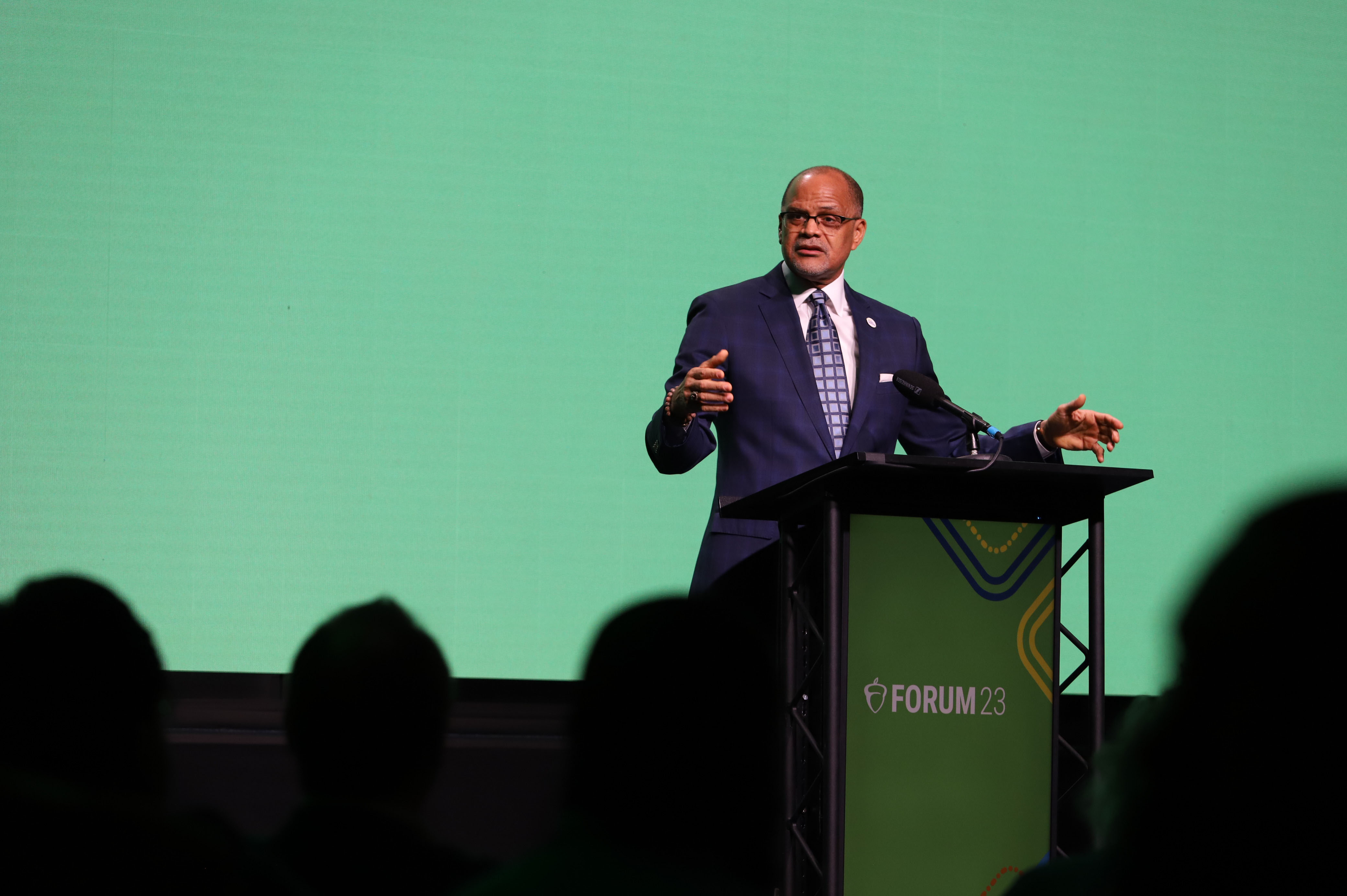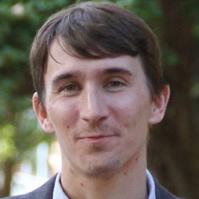College Board Forum 2023
Plenary Session | Educational Access and Opportunity

Students are eager to shape the country’s future, and educators should meet their energy with open arms and a “culture of yes.” That was the message from a quartet of accomplished school leaders and civil rights advocates during the Thursday plenary of the College Board Forum 2023.
“Democracy is messy, our republic can be messy, our history is messy!” said New York City Schools Chancellor David Banks. He said that students are eager to hear a deeper, more complex story of the country, and pointed to the huge demand for AP African American Studies and similar courses. “Every child in America needs to know this history. That’s how we grow, that’s how we have a deeper appreciation for each other.”
Banks cited the incredible diversity of New York City Schools as an example of what’s possible when America embraces its founding ideals. From meeting with Cardi B in the Bronx to visiting with Jewish leaders at Brooklyn yeshivas, Banks celebrated the joy of seeing so many different cultures find a home in his city. “The beauty and the tapestry of a place like America—there’s no place in the world like this!”

New York City Schools Chancellor David Banks
In a conversation following Banks’s remarks, educators and advocates focused on how schools can embrace students’ hunger for progress. Susan Enfield, superintendent of Washoe County Public Schools in Nevada, said her goal is that every student in the district is known by name, by strength, and by need. “We can no longer leave to chance the pathways that our children choose for themselves,” she said.
Enfield called on educators and policymakers to recapture some of the urgency they felt during the pandemic, when it seemed obvious that schools would fundamentally rethink how they serve students. She talked about pushing her district to adopt a “culture of yes,” a willingness to try new things and welcome new partnerships in service of students. “When you’re living in a moment of anxiety … the easiest and sometimes most prudent answer is ‘no.’ No we can’t do that, no we can’t try that,” she said. “But we’ve got to be open to new ideas and new possibilities and new ways of thinking.”
Kedra Ishop, vice president for Enrollment Management at the University of Southern California, said students are hungry to pick up the mantle of change, to build on the progress of earlier generations in opening up the doors of education. She talked about her mother’s pride in attending a historically black university in Texas, and how hard the civil rights advocates of earlier generations fought so that Kedra and her fellow students would have access to even more institutions. Ishop studied at the University of Texas at Austin, which was only possible because of the dedicated push to integrate the school. Today’s students are ready for the next round of progress, she said.
“They’re ready for the world to be different, they’re ready to have a role in that,” Ishop said. “The belief is still there, the expectation is still there, the want to provide for our children, and to live up to this democratic ideal.” It’s the job of schools and teachers to give students a deeper context for social change, Ishop said, so they know the history of progress and can make informed decisions about how to advocate for the causes they believe in.
Rashad Robinson, president, Color of Change, also cited his own family’s history as an inspiration for the challenging work of advocating for racial justice and equity. His grandfather was a sharecropper who never had a formal education, but he still went out of his way to stay engaged with politics and participate in elections. “I think about that a lot as I think about the role for parents, for students, for community members in being able to have the tools to make their voices heard in the most powerful ways,” Robinson said. People need the education and the confidence to participate in democracy and shape institutions in the fight for justice, and schools are a critical part of that work. “I want to end by thanking you for your work, by thanking you for the fights you are in, for helping to make the next generation all that it can become.”

Left to right: Jim Montoya, Susan Enfield, Rashad Robinson, Kedra Ishop
